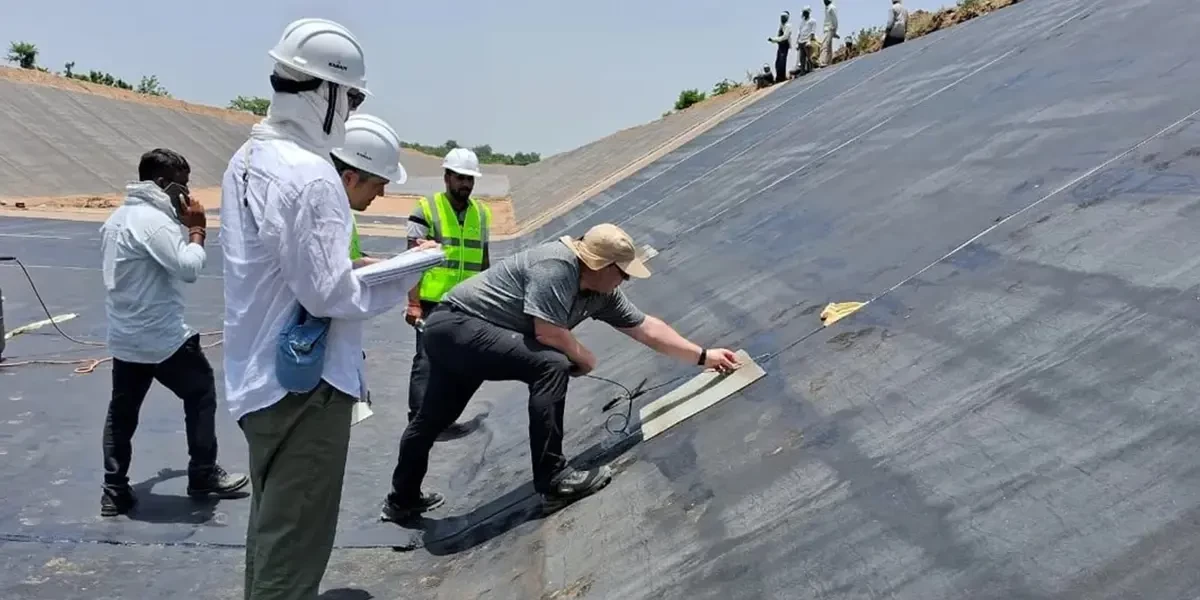

In the intricate tapestry of modern infrastructure, the efficient management of water resources emerges as a pressing priority. As urban expansion and climate change intensify, sustainable solutions for water are increasingly imperative. At the core of these solutions lies a multifaceted material—the bituminous geomembrane. Composed of a synthetic sheet of bitumen reinforced with polyester or glass fibres, this hybrid composition confers outstanding characteristics, making it pivotal across diverse applications.
Bituminous geomembranes are defined by exceptional impermeability, resilience, pliability, and chemical resistance. These properties render them indispensable for an array of projects involving water, whether treating waste or storing supplies for irrigation, aquaculture, landfills, or harvesting.
The waterproofing attributes of bituminous geomembranes provide a robust barrier against infiltration, which is crucial for constructing containment facilities. Their integrity protects the system from breaches while reducing losses under hydrostatic pressures.
Engineered to persevere under harsh conditions such as UV, temperature extremes, and chemical interactions, these geomembranes exhibit remarkable endurance and lifetime. Maintenance costs decrease as systems function for extended periods of time.
The inherent pliability of bituminous geomembranes facilitates installation in challenging terrain and around obstacles, improving efficiency. Whether for linear applications like canals or complex structures like landfills, customisation fulfils specific site needs.
Resilience to a wide range of chemicals, including acids, bases, salts, and solvents, qualifies these geomembranes for diverse uses in wastewater treatment, industrial containment, and agricultural storage.
While initial expenses may exceed conventional materials, long-term advantages frequently surpass upfront investment. Durability and minimal maintenance, coupled with preventing losses and contamination, yield substantial savings over the lifetime of projects.
The adaptability of bituminous geomembranes has resulted in their extensive utilisation across sectors involving water.
Geomembranes are critical components in wastewater treatment infrastructure. Acting as impermeable barriers, they establish the foundation for wastewater lagoons, ponds, and landfills, inhibiting contaminants from permeating groundwater and soil through bituminous geomembrane liner. By engineering rugged containment structures, geomembranes safeguard environmental integrity and conserve precious water resources.
In agriculture and fish farming, geomembranes provide a variety of applications. Employed in irrigation canals, reservoirs, and fish ponds, they facilitate efficient water distribution while minimising water loss. Canals and holding tanks lined with geomembranes markedly decrease seepage and evaporation, optimising water use for crop irrigation and aquaculture. What's more, geomembranes can create enclosures for aquaculture operations, sheltering the aquatic ecosystem and preventing pollution.
Geomembranes play a key role in landfill design, comprising a vital part of the waste containment system. By installing an impermeable lining of the geo membrane at the landfill base, geomembranes prevent leachate produced by decomposing refuse from spreading into surrounding soil and aquifers. This action substantially mitigates landfills' environmental effects and safeguards public health.
With water scarcity emerging as a significant global challenge, geomembranes present effective solutions for water harvesting and storage. Employed to construct rainwater collection tanks, reservoirs, and dams, they ensure the efficient gathering and usage of this precious resource. What's more, geomembranes help reduce water loss through seepage and evaporation, maximising water availability for various applications, including irrigation, industry, and domestic consumption.
In densely populated areas, geomembranes play a pivotal role in cultivating sustainable and environmentally-friendly rooftop landscapes. They act as an impermeable barrier beneath the planting medium, protecting structural integrity from moisture-related harm while establishing the perfect conditions for flourishing flora. The perks of green roofs significantly include improved stormwater handling, reduced power usage, enhanced air quality, and expanded biodiversity.
YOOIL Envirotech stands at the vanguard of geosynthetic manufacturers, driving innovation and sustainability in tackling water management difficulties. With a commitment to excellence and performance with sustainable used in water management strategies, YOOIL Envirotech presents an extensive collection of bituminous geomembranes tailored to satisfy the distinct demands of diverse projects.
YOOIL Envirotech boasts an extensive selection of bituminous geomembranes suited for a variety of applications and project scales. Our offerings include high-density polyethylene (HDPE) geomembranes, composite geomembranes, and geosynthetic clay liners (GCLs), effectively resolving numerous water management issues.
We implement rigorous quality control measures throughout our production processes, confirming our products consistently meet or exceed international standards. Our state-of-the-art facilities and thorough testing protocols ensure the highest levels of quality and functionality.
Our skilled team of engineers and technicians provides extensive technical help and guidance to clients throughout the entire project lifecycle. We work closely with project stakeholders to comprehend their distinct needs and recommend the most suitable geomembrane solutions.
YOOIL Envirotech is dedicated to fostering sustainable practices and decreasing our environmental footprint. We incorporate recycled materials into our manufacturing and provide products that boost energy efficiency and resource conservation.
We emphasise customer satisfaction above all else, prioritising strong, trusting relationships built on dependability and service excellence. Our dedication extends from precise deliveries to comprehensive support through technical guidance, project coordination, and continued assistance.
As concerns mount over intensifying scarcity and environmental fragility worldwide, innovative solutions to water governance grow ever more crucial. Bituminous geomembranes, renowned for their unparalleled traits and malleability, are poised to significantly influence evolving management approaches. Working closely with experienced firms such as YOOIL Envirotech, providing premier materials and counsel, allows us to rise to the intricacies of waterway stewardship and foster sustenance for generations to come. Choose YOOIL Envirotech as your steadfast ally on the journey towards assured water security.
